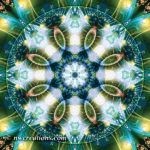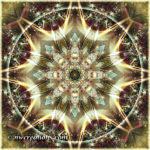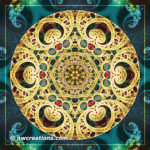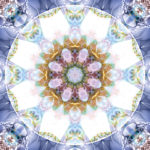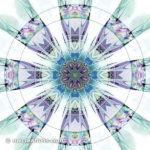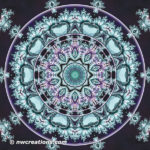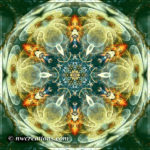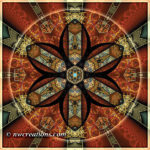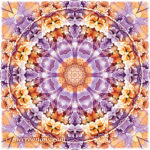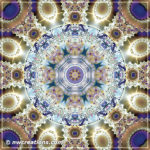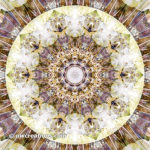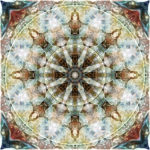by atmara | Jul 20, 2017 | Inspiration, Science, TED, TED Talks
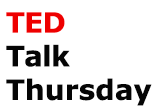 According to TED.com : “While the mega-banks were toppling in early 2009, Juan Enriquez took the stage to say: The really big reboot is yet to come. But don’t look for it on the stock exchange or the political ballot. It’ll come from science labs, and it promises keener bodies and minds. Our kids are going to be … different. “
According to TED.com : “While the mega-banks were toppling in early 2009, Juan Enriquez took the stage to say: The really big reboot is yet to come. But don’t look for it on the stock exchange or the political ballot. It’ll come from science labs, and it promises keener bodies and minds. Our kids are going to be … different. “
“A broad thinker who studies the intersections of these fields, Enriquez has a talent for bridging disciplines to build a coherent look ahead. He is the managing director of Excel Venture Management, a life sciences VC firm. He recently published (with Steve Gullans) Evolving Ourselves: How Unnatural Selection and Nonrandom Mutation Are Shaping Life on Earth. The book describes a world where humans increasingly shape their environment, themselves and other species.”
“Enriquez is a member of the board of Synthetic Genomics, which recently introduced the smallest synthetic living cell. Called “JCVI-syn 3.0,” it has 473 genes (about half the previous smallest cell). The organism would die if one of the genes is removed. In other words, this is the minimum genetic instruction set for a living organism.”
For those of you not familiar with TED Talks here is a brief summery from www.ted.com: “TED is a small nonprofit devoted to Ideas Worth Spreading. It started out (in 1984) as a conference bringing together people from three worlds: Technology, Entertainment, Design. Since then its scope has become ever broader. Along with two annual conferences — the TED Conference in Long Beach and Palm Springs each spring, and the TEDGlobal conference in Oxford UK each summer — TED includes the award-winning TEDTalks video site, the Open Translation Project and Open TV Project, the inspiring TED Fellows and TEDx programs, and the annual TED Prize”
——————————————————————————————————–
I look forward to your thoughts and comments!
Like this:
Like Loading...
by atmara | Jul 13, 2017 | Inspiration, Science, TED, TED Talks, Time
 According to TED.com : “Stewart Brand works on the Clock of the Long Now, a timepiece that counts down the next 10,000 years. It’s a beautiful project that asks us to think about the far, far future. Here, he discusses a tricky side problem with the Clock: Where can we put it? “
According to TED.com : “Stewart Brand works on the Clock of the Long Now, a timepiece that counts down the next 10,000 years. It’s a beautiful project that asks us to think about the far, far future. Here, he discusses a tricky side problem with the Clock: Where can we put it? “
“With biotech accelerating four times faster than digital technology, the revival of extinct species is becoming possible. Stewart Brand plans to not only bring species back but restore them to the wild.”
“Brand is already a legend in the tech industry for things he’s created: the Whole Earth Catalog, The WELL, the Global Business Network, the Long Now Foundation, and the notion that “information wants to be free.” Now Brand, a lifelong environmentalist, wants to re-create — or “de-extinct” — a few animals that’ve disappeared from the planet.”
“Granted, resurrecting the woolly mammoth using ancient DNA may sound like mad science. But Brand’s Revive and Restore project has an entirely rational goal: to learn what causes extinctions so we can protect currently endangered species, preserve genetic and biological diversity, repair depleted ecosystems, and essentially “undo harm that humans have caused in the past.””
“His newest book is Whole Earth Discipline: An Ecopragmatist Manifesto.”
For those of you not familiar with TED Talks here is a brief summery from www.ted.com: “TED is a small nonprofit devoted to Ideas Worth Spreading. It started out (in 1984) as a conference bringing together people from three worlds: Technology, Entertainment, Design. Since then its scope has become ever broader. Along with two annual conferences — the TED Conference in Long Beach and Palm Springs each spring, and the TEDGlobal conference in Oxford UK each summer — TED includes the award-winning TEDTalks video site, the Open Translation Project and Open TV Project, the inspiring TED Fellows and TEDx programs, and the annual TED Prize”
——————————————————————————————————–
I look forward to your thoughts and comments!
Like this:
Like Loading...
by atmara | Mar 2, 2017 | Brain science, Psychology, Science, TED, TED Talks
 According to TED.com: “Neuroengineer Ed Boyden wants to know how the tiny biomolecules in our brains generate emotions, thoughts and feelings — and he wants to find the molecular changes that lead to disorders like epilepsy and Alzheimer’s. Rather than magnify these invisible structures with a microscope, he wondered: What if we physically enlarge them and make them easier to see? Learn how the same polymers used to make baby diapers swell could be a key to better understanding our brains.”
According to TED.com: “Neuroengineer Ed Boyden wants to know how the tiny biomolecules in our brains generate emotions, thoughts and feelings — and he wants to find the molecular changes that lead to disorders like epilepsy and Alzheimer’s. Rather than magnify these invisible structures with a microscope, he wondered: What if we physically enlarge them and make them easier to see? Learn how the same polymers used to make baby diapers swell could be a key to better understanding our brains.”
“Ed Boyden leads the Synthetic Neurobiology Group, which develops tools for analyzing and repairing complex biological systems such as the brain. His group applies these tools in a systematic way in order to reveal ground truth scientific understandings of biological systems, which in turn reveal radical new approaches for curing diseases and repairing disabilities. These technologies include expansion microscopy, which enables complex biological systems to be imaged with nanoscale precision, and optogenetic tools, which enable the activation and silencing of neural activity with light (TED Talk: A light switch for neurons). Boyden also co-directs the MIT Center for Neurobiological Engineering, which aims to develop new tools to accelerate neuroscience progress.”
For those of you not familiar with TED Talks here is a brief summery from www.ted.com: “TED is a small nonprofit devoted to Ideas Worth Spreading. It started out (in 1984) as a conference bringing together people from three worlds: Technology, Entertainment, Design. Since then its scope has become ever broader. Along with two annual conferences — the TED Conference in Long Beach and Palm Springs each spring, and the TEDGlobal conference in Oxford UK each summer — TED includes the award-winning TEDTalks video site, the Open Translation Project and Open TV Project, the inspiring TED Fellows and TEDx programs, and the annual TED Prize”
——————————————————————————————————–
I look forward to your thoughts and comments!
Like this:
Like Loading...
 According to TED.com : “While the mega-banks were toppling in early 2009, Juan Enriquez took the stage to say: The really big reboot is yet to come. But don’t look for it on the stock exchange or the political ballot. It’ll come from science labs, and it promises keener bodies and minds. Our kids are going to be … different. “
According to TED.com : “While the mega-banks were toppling in early 2009, Juan Enriquez took the stage to say: The really big reboot is yet to come. But don’t look for it on the stock exchange or the political ballot. It’ll come from science labs, and it promises keener bodies and minds. Our kids are going to be … different. “


